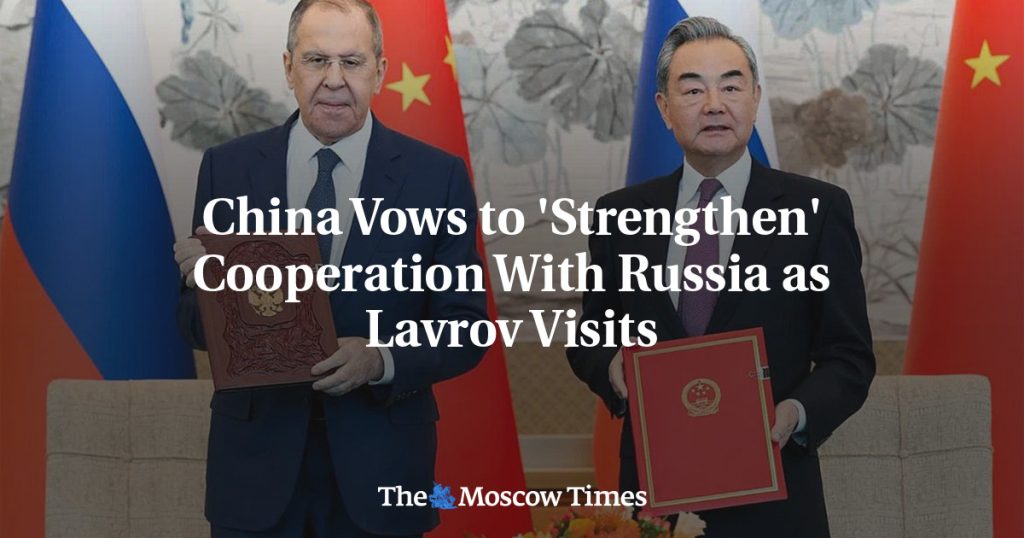China’s top diplomat expressed Beijing’s commitment to strengthening strategic cooperation with Moscow during a meeting with Russian Foreign Minister Sergei Lavrov. The two countries aim to stand on the side of “fairness and justice” as they deepen their diplomatic ties, especially in light of Russia’s ongoing conflict in Ukraine. China has promised to support Russia’s development under President Vladimir Putin’s leadership and to provide strong support to each other on the world stage. Lavrov thanked China for its support following Putin’s re-election, emphasizing the deep trust of the Russian people in their leader and the continued strengthening of strategic partnership with China.
Despite the growing closeness between Russia and China, analysts suggest that China holds the upper hand in the relationship. Moscow’s international isolation has increased following its invasion of Ukraine, while China’s influence continues to grow. By providing necessary materials for Russia’s war effort, China is enabling Moscow to sustain its confrontation with the West. China’s stronger bargaining power gives it more leverage over Russia, and some argue that Russia risks becoming dependent on China. U.S. officials have warned China against indirectly aiding Russia’s war effort and urge China to use its influence to help bring about peace in Ukraine.
During Lavrov’s recent visit to Beijing, he accused the West of imposing “unlawful sanctions” and attempting to limit China’s access to U.S.-made technologies. U.S. officials have expressed concerns about China’s support for Russia’s defense industry and military procurement. Lavrov argued that the West is trying to hinder China’s economic and technological development to eliminate competition. In response, Wang Yi emphasized that China and Russia must take a clear stand on historical progress, fairness, and justice. They oppose hegemony, tyranny, and bullying, as well as Cold War thinking and separatist provocations, while advocating for a common future for all humankind.
The U.S. has repeatedly urged China to use its influence to broker peace in Ukraine and cease supporting Russia’s war effort. U.S. Secretary of State Antony Blinken warned China against indirectly aiding Russia’s defense industry, while Treasury Secretary Janet Yellen cautioned Chinese officials about the consequences of supporting Russia’s military procurement. These warnings come amid escalating tensions between the West and Russia and China. Lavrov sought to draw a parallel between the West’s sanctions on Russia and efforts to restrict China’s access to critical technologies, accusing Western powers of trying to impede China’s economic and technological progress.
Despite the asymmetry in the China-Russia relationship, with China holding more bargaining power and influence, both countries are committed to deepening their strategic partnership and advancing their shared interests on the world stage. Wang Yi reiterated China’s commitment to playing a constructive role in promoting peace and stability globally, while opposing actions that threaten fairness, justice, and historical progress. Both China and Russia are working towards building a common future that prioritizes cooperation, mutual respect, and the rejection of power plays and Cold War mentalities. As tensions between the West and Russia persist, the China-Russia partnership remains a crucial aspect of international relations in the 21st century.















